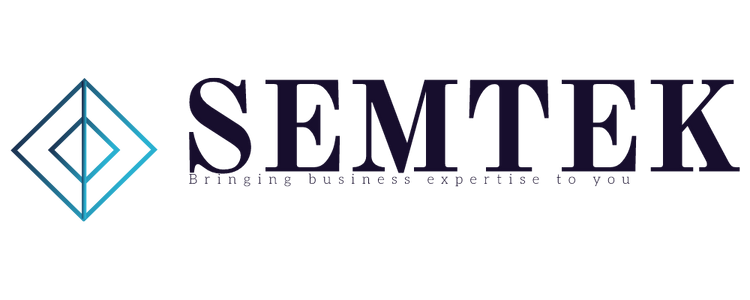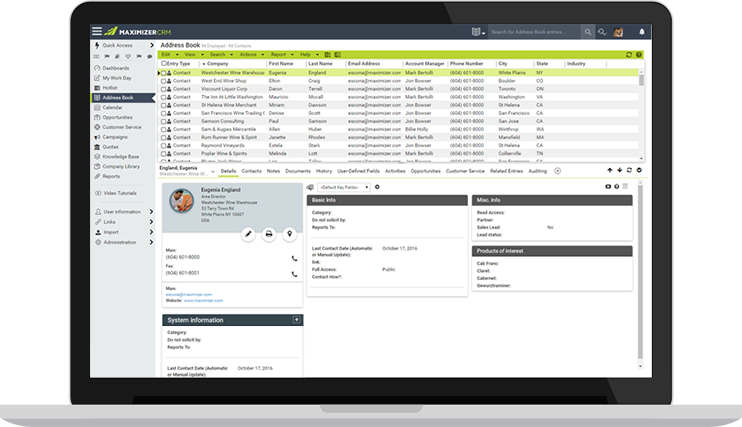Introduction to contact management software
In business, who you know matters.. a lot. Your contacts are the lifeblood of your work, which is why contact management software is so key.
A contact management system lets you sync all of your contacts to one record, stay on top of your networks, and communicate in real-time. Additionally, you can view conversation history and filter your network into contact lists by title, industry, relationship to your business, and a range of other attributes and custom fields.
Reading this article on a site called CRM.org, you might be wondering: “What’s the difference between contact management software and CRM, aka customer relationship management software?”
A contact management platform is, essentially, an address book on steroids. It provides the basic foundation (contact information) that you need to build up sales and marketing strategies and drive customer retention.
Contact management tools are particularly favored by SMBs, where a team member or sales agent/manager takes on multiple roles for one contact. In this context, contact relationship management can be seen as a kind of ‘lightweight CRM’ with simpler, more linear functionality.
True CRM, meanwhile, are more full-featured, handling leads, deals, and offering extended tools for sales, marketing, service, and support. However, the overwhelming majority of CRMs incorporate contact management as a key component of their business suite.
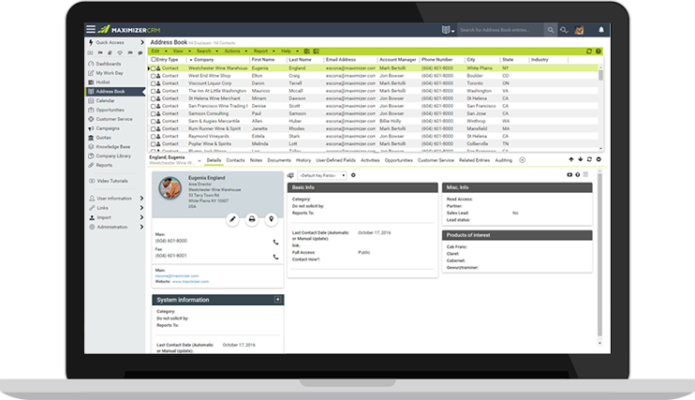
Benefits of contact management software
Automatically log all your cross-channel communications with customers, so you’ll have a record to consult later. This information will make a crucial difference when it comes to determining what product or service to offer them for cross-selling and up-selling, the tone of your next interaction, and how best to interact with similar customers later.
Improved customer service
With all-in-one contact management, customer service agents can deliver better performance with less effort. They’ll have easy access to a centralized contact list, complete with detailed records of past cross-channel customer interactions, and receive task notifications and follow-up reminders. All this contributes to improved customer experience, reduced churn, and customer loyalty.
Centralized repository of contact information
Contact information comes to you across many different channels, like social media, live chat, phone calls, your company website, face-to-face convos, web form capture, purchase records, and more. A contact management platform assimilates all this information into one business contact record—including address book and phone numbers—so you can access it from one place.
Greater collaboration across teams
A centralized contact record gives everyone in your business more visibility and makes your organization smarter and more transparent. Team members can consult individual case files worked on by other staff in real-time, reducing the need for real-life meetings. This eliminates tasks, hand-off mistakes, and redundant work, plus encourages transparent collaboration.
Data-driven insights
Reporting and analytics tools mine your customer data, providing insights into your audience, what kind of mdarketing campaigns you should be running, and your overall business needs. Intelligent lead management and segmentation tools can identify the right clients to focus resources on.
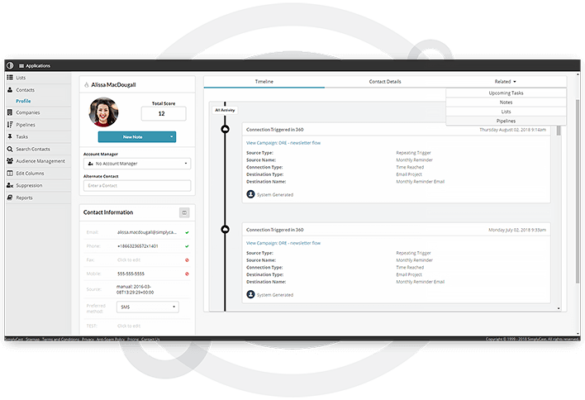
Key features of contact management software
Contact lists and segmentation
Segmentation tools sort contacts by industry, geography, place in the customer lifecycle, and other attributes. Identifying customer profiles helps personalize your customer experience, and lets you find out which demographic provides the greatest opportunities.
Mobile app
A mobile app for Android/iOS comes standard these days for any contact management platform. Wherever you may be, you can gain immediate access via mobile device to contact lists and key information, then act on it for sales, support, customer service, and marketing tasks.
Task management
Assign tasks to specific team members, give everyone full visibility on who is doing what, and set deadlines with reminder notifications. Cloud-based SaaS contact management tools, when operating as part of CRM, put all your work processes in one place and let you deal with task and workflow processes on-the-fly.
Seamless customer data recording
Automate your customer data entry, eliminating mundane admin tasks and freeing up time for the more important work. Automated data recording can, in turn, be used to run email marketing automation, sales automation, and more.
Import/Export
Import contact data from CSV and Excel spreadsheet files, business cards, or CRM and other digital tools. Export them just as easily, so you’re covered in case you migrate platforms, start using new apps, or need external stakeholders to have data visibility.
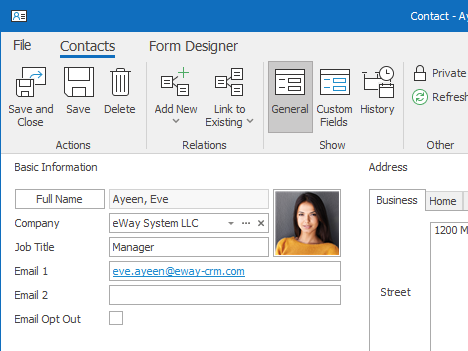
Here’s our list of the top contact management software.
-
Less Annoying CRM
Benefits:
Less Annoying CRM (aka LACRM) is designed specifically for small businesses. They offer an all-inclusive, single price package for task management, keeping tabs on contacts, tracking leads, making sure follow-ups are sent out.
LACRM’s lean but nimble toolkit has got you covered when it comes to managing all your customers and other contacts, tracking your leads through pipelines and staying on top of events and tasks (in easy-to-use calendar and agenda forms).
Emails written and received outside a CRM platform can be logged inside LACRM, which provides every user with a unique email logging address (for which you create a contact with whatever email provider you use).
Drawbacks:
There aren’t any app integrations, which might be a significant limitation, depending on your needs. The app sends out notifications by SMS or email, but not in-app.
Pricing:
$15 per user/per month, billed monthly.
LACRM offers a risk-free, 30-day free trial for its only pricing plan.
-
monday.com
Benefits:
Monday.com is a customizable, flexible project management CRM with a built-in contact list. The platform captures calls, emails, and meetings with contacts, leaving them easy-to-access anytime you need to.
Once your contacts are in your system, and in your sales pipeline, you can track sales progress easily with colorful, graphical views, including Kanban, maps, timeline, files, charts, and calendar. The visually-oriented platform has a clean layout with drag-and-drop flexibility and colorful accents that draw the eye to important information.
The built-in world clock takes the edge off communicating with contacts across multiple regions, displaying time zones (based on geographical location info) clearly next to contacts (and team members).
Drawbacks:
Lacks call recording feature, so if you want to attach phone conversations to a contact record (or generate voice-to-text transcriptions in-app), you’ll have to find a third-party tool. The mobile version has been described by some users as “clunky,” and lacks some of the desktop app’s features.
Pricing:
Basic plan is $25 per user/per month, billed annually
Standard plan is $39 per user/per month, billed annually
Pro plan is $59 per user/per month, billed annually
Enterprise plan requires contact with Monday.com
A 14-day free trial is available without a credit card.
-
HubSpot
Benefits:
HubSpot offers a free CRM with contact management tools and a full suite of paid business tools.
The CRM allows you to add contact records from Gmail and Outlook, or corporate email and web forms, with one-click. Once added, the platform auto-updates records and logs all sales activities with a contact. HubSpot automatically trawls its database of 20 million+ businesses and builds revenue, industry, and more into contact details wherever possible.
Apart from the sales process, this information helps segment customers and run marketing campaigns. The platform supports up to 1 million contact and company records, which should comfortably cover pretty much most businesses.
Drawbacks:
Contact filter options could be more specific. The software learning curve is moderate, although this is lessened by access to video tutorials, support resources, and community forums.
Pricing:
HubSpot CRM is free, and the number of users is unlimited
Marketing Hub, Sales Hub, and Service Hub add-on packages are $50 each per user/per month, billed monthly
HubSpot CMS starts at $300 per month, billed monthly
All-inclusive Starter Growth Suite starts at $113 per user/per month, billed monthly
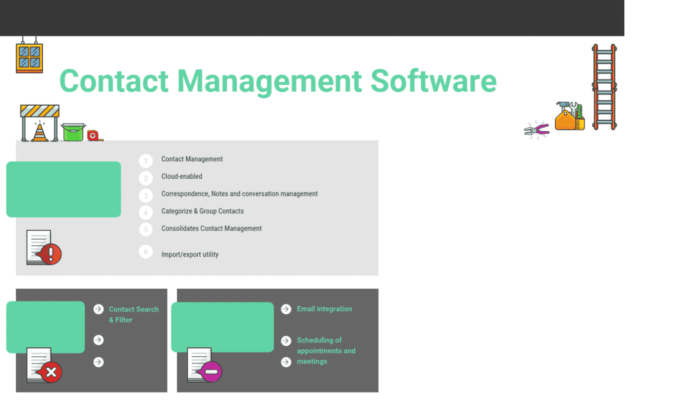
-
Zoho ContactManager
Benefits:
Zoho, the maker of the popular Zoho CRM and Zoho Sprints platforms, also offers a dedicated contact management product, Zoho ContactManager. The app provides a unified address book for customer contacts, with email and social media engagement tools to manage all your cross-channel customer relationships.
It allows you to track deals and categorize task types with Tags feature, as well as create and assign roles to team members and set privacy permissions for information-sensitive projects. Smart task and email templates speed up routine inquiries and interactions with customers and help ensure best practice interactions every time.
Drawbacks:
Custom fields are listed alphabetically and cannot be custom-arranged amongst standard fields. The pricing model is inflexible (jumps from single-user plan to 25 users fixed price plan), so some companies might end up paying for unnecessary capacity in users, contacts, and deals.
Pricing:
Free plan is available (limited to single user, 500 contacts, 10 deals)
Smart plan for up to 25 users (limited to 10,000 contacts and 1,000 deals) is $12.50 per month billed annually, and $15 billed monthly
Ultra plan for up to 25 users (unlimited contacts, unlimited deals) is $20.83 per month billed annually, and $25 per month billed monthly
-
Affinity
Benefits:
Billed as a ‘relationship intelligence platform,’ Affinity is targeted at contact management for venture capital, fundraising, sales, and real estate applications.
The app’s collective intelligence builds a contact list from companies and people you’ve interacted with and provides real-time updates on their activity. Machine-learning and natural language processing analyze sentiment and scores the strength of your relationships. AI also eliminates duplicate contacts and companies in your record.
The “Alliances” feature, meanwhile, identifies networking opportunities. indicating which of your contacts might be able to provide a warm introduction to another party you’d like to in touch with, such as a key decision-maker at another company.
Drawbacks:
Pipeline visualization tools aren’t so clear, and data visualization tools are limited. The mobile version is pretty clunky.
Pricing:
Pricing is flexible, dependent on contract length and size of the organization; please contact the vendor for details.
Related keyword: 0
Related post:
